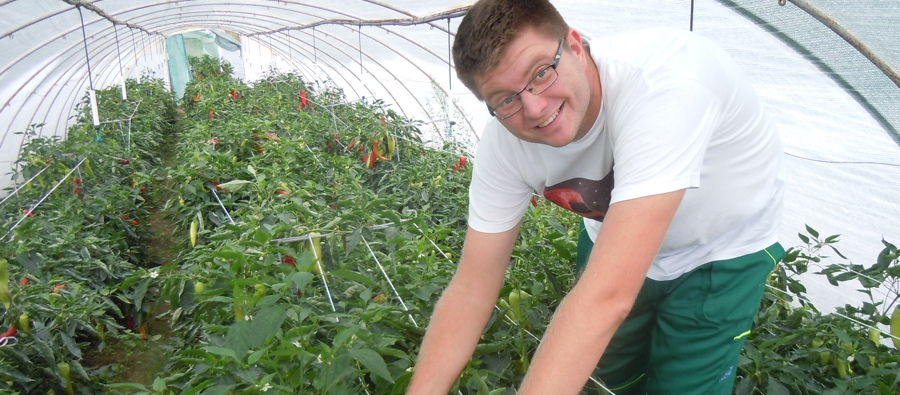This is the sixth post in our series “I am Agriculture”, that showcases the many careers available to young people in agriculture. Today’s post comes from Ivan Tupajic, an agronomist who works at a plant breeding station in Serbia.
My family and I live in a small and beautiful town of Kosjerić in Western Serbia, but my parents come from the countryside. That’s why we’re “weekend farmers”, as I like to say. Our estate is located not far away from the town and I have been doing agricultural work since I was a little child. I have always been in touch with agriculture, and beside farm animals that we keep, we also produce raspberries and process plums.
I never imagined that I would become an agriculture engineer one day. At first I wanted to study political sciences, after that I wanted to study law, after that literature, biology, but after watching a TV show about agriculture I decided to enrol in the Faculty of Agriculture in Belgrade. I have never regretted it. I realized its advantage over other faculties. No matter how much mankind develops, people will always eat. A Byzantine proverb goes as follows: “When a person is full they have a thousand wishes, but a hungry person has only one.”
After I finished my studies, my mentor suggested that I go and do an internship in a company called “SUPERIOR”, the first private plant breeding station in Serbia. This company is engaged in development of new vegetable and corn varieties and hybrids, mainly through traditional plant breeding techniques such as crossing and selection from given genetic diversity. This allows us to breed vegetables that are better tasting, have a longer shelf life or are more resilient.
After I came to the company it was decided that I would help the researchers involved in selection process. I had the opportunity to actively participate in crossing and pollination of tomatoes, pepper, corn and melons. We also grew new types of cabbage. I attended the company meetings and had the honour to represent the company at agricultural fairs. The company director treats his employees very well indeed. After two and a half months in this company I was offered a job there and I accepted it.
So, why do I think young people are not interested in agriculture? The biggest problem in Serbia, but I also believe in other places in the world, is that we are forced to think that we should live in cities, and that it is some sort of humiliation to live and work on the countryside. The consequences are stronger migrations from the countryside into the cities and a question, which is posed more and more often: “Who is going to feed us when the existing farmer structures get old and there is no one to replace them?” What can we do as young agriculture engineers?
I think we should find unique examples of young people who went back to their farms and who are successful in their work and promote their stories. We should also get out of our “comfort zone” and face the problems on the field by organising various lectures and creative workshops at various levels for the youth, paying special attention to children, in order for them to connect with agriculture in the way I did when I was a child. We could also connect with the organisations, which aren’t connected to food directly (e.g. sports, culture, music, art) in order to raise consciousness and create all conditions for the young people to live on the countryside.
My advice to be successful in an agricultural career is to not only focus on passing the exams and finishing all your tasks. Tomorrow you will be the one who will feed the people and you must know how to produce healthy food. Your worth will only be equal to what you know. Make sure that you collect all the books in the field, because you never know what you will do in the future and which information may be useful.
Are you a young professional in agriculture with a story to share? Tweet us using #IamAg to join our campaign to inspire more young people to get involved in agricultural careers.



